In �������� premises, building services are managed by our facilities management partners and anyone requiring more detail information should contact their local FM. This page also provides brief guidance to anyone responsible for renting properties for productions or use as locations.
What Can Go Wrong?
- Legionnaires' disease is a form of pneumonia
- It is caused by the inhalation of airborne droplets containing significant numbers of the Legionella pnemophila bacterium
- Symptoms are initially flu-like but can progress to pneumonia, which in a minority of cases can prove fatal
- The bacteria is widespread in the natural environment, where it presents little risk. However, the risk from it increases significantly when it is allowed to proliferate in building water systems, particularly where there is also a risk of water aerosolisation e.g. showers, cooling tower 'drift'. Risk of proliferation is typically associated with low water turnover, water temperatures maintained between 20 and 45 degrees C, accumulation of sludge / slime and lack of an adequate water treatment regime.
- The main risk to �������� staff is likely to be when travelling overseas, where water systems will be less well maintained than in the UK.
Legal/�������� Requirements
- In the UK there are legal guidelines under COSHH on how to manage the risk from legionella. HSE technical guidance is given in HSG274 and the ACOP L8 “Legionnaires' disease. The control of legionella bacteria in water systems”.
- Other organisations (e.g. CIBSE) have also provided detailed Guides on how to design and manage water systems to minimise these risks.
Control Measures
If you are responsible for or are hiring a building which has water systems there should be:
- A risk assessment which assesses the risks from legionella
- A set of control measures - often referred to as a 'written scheme'
- Records of precautions and tests
- Someone who is nominated as responsible for the safety management of the water systems.
Precautions which will help control the risk include:
- Maintaining cold water systems (pipes and storage tanks) below 20ºC - usually simply achieved by regular turnover of mains water
- Maintaining hot water storage systems (calorifiers and water heaters) at 60ºC, to achieve 50ºC on its return in recirculation systems, and at least 50ºC at outlets within 1 minute of flushing - check water temperatures and adjust thermostat accordingly. Beware risk of scalds
- Making sure that low use systems (hot or cold) are flushed through regularly, for example, by running taps routinely - there should not be any 'dead legs' or 'blind ends' in the system which result in water stagnation
- Keeping the system clean to avoid the build-up of sediments which may provide nutrients and/or provide refuge for the bacteria from treatment chemicals e.g. keep lids on tanks, de-sludge large tanks/calorifiers
- Paying particular attention to the condition of water sources which create droplets which can de dispersed and inhaled, particularly if these people may also be immuno-compromised
- Complex water systems (wet cooling towers, large premises systems, etc.) should be routinely managed by a specialist building maintenance company, who can test, clean and disinfect the system according to an appropriate written scheme
- Water systems that have remained unused for an extended period should be cleaned and chlorinated by a specialist water treatment company prior to being put back into use.
If you are travelling, especially in warm climates, and you have concerns about the water quality:
- Avoid using or sitting by spas, Jacuzzis
- Run taps and shower heads for at least a couple of minutes each day
- If the water quality is particularly poor, do not use showers which create fine sprays e.g. when under high pressure
- Swimming pools which appear clean and which have a smell of chlorine are unlikely to be a risk.
Division Specific Issues
- Workplace is responsible for safety of water systems in most �������� Premises except overseas where this is the responsibility of Global News.
- Studios – are responsible for temporary water use within studio based productions – for example rain effects, dunk tanks.
- Producer – is responsible for locations. Higher risk areas will be showers, especially in crew vehicles and to a lesser extent catering.
- Check with relevant contractors and with location owners about how they manage water safety using this page as a guide to what should be in place.
Recommended links
Water topics
-
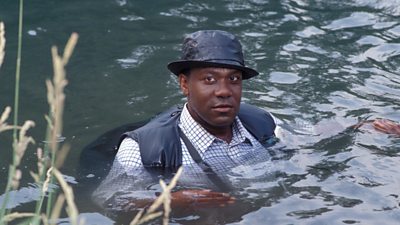
Water: Working On or Near
Guidance to working on or near water. -

Boats: Working on
A guide to working and filming from boats. -
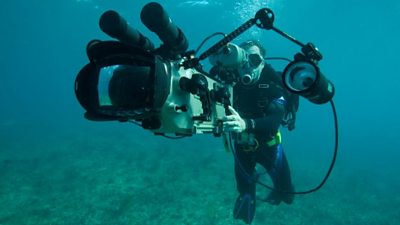
Diving
A Guide to Scuba Diving and free Diving in both open water and pools. -
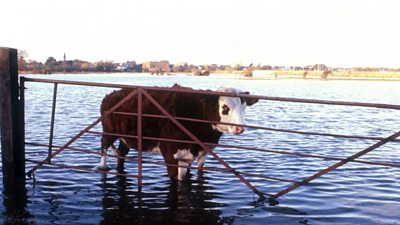
Floods and Coastal Surges
A guide to inland floods. -
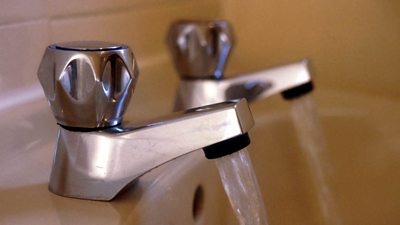
Legionella in Premises: Control of
This guidance provides an overview of how water systems are managed in premises to minimise the risks from the Legionella bacteria. -

Water and Waste Water Management
How to manage water and waste water arising from �������� activities -
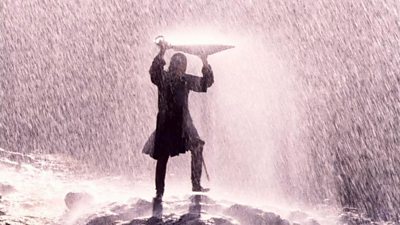
Weather
The �������� regularly film and record outside, exposing staff to a variety of adverse and changeable weather conditions during the course of their work. Thunderstorms pose a particular threat to those working at height outdoors, or with raised masts on broadcast vehicles. -
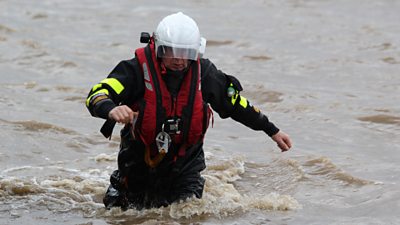
Wearing Your Life Jacket
Life jackets save lives and should be worn where there is a risk of entering the water unintentionally.
Disease-specific topics
-
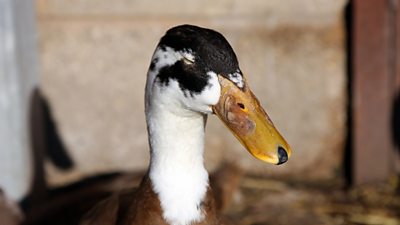
Bird Flu
Advice for staff covering the outbreak of avian 'flu in Yorkshire in 2014 -

Living with Coronavirus (Covid-19) – advice for staff
Advice for staff about travel and/or interviewing guests -
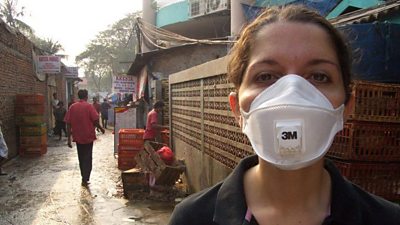
Disease and Contact with Viruses and Bacteria
A guide for anyone deployed to areas where there is risk from infectious disease from human, animal, insect or parasite sources, including zoonoses. These controls can also apply to harmful bacteria found in incidents such as sewage spills. -

Ebola Virus Disease (EVD)
Ebola is a contagious and often fatal illness which has had periodic outbreaks in the DRC and Sudan. -
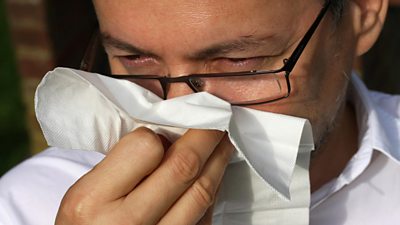
Influenza ('Flu)
A guide to influenza, or 'flu', for individuals seeking general advice or during an epidemic or pandemic situation. -

MERS: Middle East Respiratory Syndrome
This is a virus that is new to humans and was first identified in Saudi Arabia in 2012. -

Mpox (monkeypox)
Requirements to be met for Mpox (2024) outbreak coverage and/or travelling to work in areas where there are high reported cases of Mpox. -
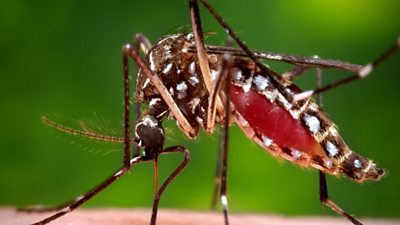
Zika Viral Disease
Zika Viral Disease is a mosquito-borne disease caused by the Zika virus. In 2015, the World Health Organisation declared it a global public health emergency.
More from SSR
-
Your platform to record accidents, risk assessments, assurance monitoring and inspections
-
Safety Equipment Stores
Just one number to call: 020 3614 5155 -
�������� Safety Guidelines
An A-Z of ��������'s Health and Safety Guidelines -
Safety Advice Line: 0370 411 0464 Email: safety@bbc.co.uk
- A-Z of �������� Safety Guidelines
- Accident Reporting and Investigation
- �������� Health & Safety Policy
- Contractors (incl. vetted lists)
- Contributors
- Fire Safety
- Freelancers
- Independent Production Companies
- Risk Assessment
- Safety Alerts
- Safety Responsibilities
- Safety Training
- Sets & Premises Safety Guide
Events guidance - key links:
- Exhibitions
- General Guidance
- Indoor Location Recce Checklist
- Outdoor Location Recce Checklist
- Major Incidents & Emergency Planning
- Marketing and Promotional
- Noise Exposure
- Planning and Management
- Responsibilities
- Responsibilities Form
- Laser Lighting Effects
- Strobe Lighting
- Temporary Stages and Rostra
Health topics - key links:
- (�������� network only)
- Contributors Fitness to Participate
- Display Screen Equipment (DSE)
- (�������� network only)
- First Aid and Welfare on Location
- International Travel - Risks & Health
- Manual Handling
- Mental Health: ��������page
- (�������� network only)
- Personal Health and Wellbeing
- Pregnancy
- Psychological Trauma Support & Trauma Risk Management (TRiM)
- Tiredness and Fatigue
- Travel Health Contacts
�������� High Risk - key links:
- CBRN and Industrial Spills
- Covert Filming
- Crisis Management and Security Support
- Demonstrations, Protests and Crowds
- Disaster Coverage
- Door Stepping
- (�������� network only)
- (�������� network only)
- Public Order
- Safety Equipment Stores
�������� Journalism - key links:
�������� Productions - key links:
- Aerial Filming and Airfields
- Animals: Displaying and handling for performance
- Boats: Working on
- Children and Young People
- Driving
- Electrical Equipment and Systems
- First Aid and Welfare on Location
- Food Safety (Cooking and Catering)
- Remote Location Working
- Roads and Streets: Working by
- Security of Productions on Location
- Stunts
- Tiredness and Fatigue
- Unmanned Aerial Systems (UAS aka Drones)
- Vehicles: Recording in, from and around
- Working at Height: Mobile Elevating Work Platforms
- Working at Height: Tower Scaffolds
�������� Radio - key links:
- (�������� Network only)
�������� Security - key links:
�������� Sport - key links:
About this site
This site describes what the �������� does in relation to managing its health, safety and security risks and is intended for those who work directly for the ��������.
It is not intended to provide instruction or guidance on how third parties should manage their risks. The �������� cannot be held liable for how this information is interpreted or used by third parties, nor provide any assurance that adopting it would provide any measure of legal compliance. More information
Some links on this site are only accessible when connected to the �������� network
